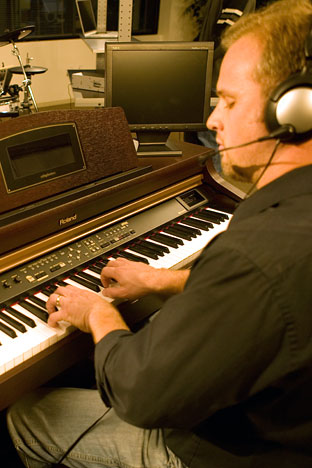Creative Solutions For Inspired Learning
Menu
Creative Solutions For Inspired Learning
MenuBy Brenda Dillon, Roland Education Consultant

Although anecdotal research doesn’t have the status of empirical research, it still reflects our personal experiences. The following anecdotal research reflects my observations when I am talking with people about their music-making experiences, especially when traveling throughout the country. It’s easy research to conduct and I hope you will try it.
Those of us in the music business are like magnets to the general population. Everybody seems to have a story to tell about their musical life or the lack thereof. Besides people who make their living in music, I have been able to divide the remainder of the population into three distinct categories:
Since many teachers offer only 30- to 45-minute private lessons, it’s often difficult to find time for anything beyond repertoire and technique. Also, since learning to play the piano may be the loneliest learning experience of any child or adult, I recommend this activity (scenario) for your consideration. My student has learned “Over the Rainbow” from Performance Plus, Book 3—TV and Movie Music, pp. 14- 16. (See page 3 for this score.)
Performance Plus, published by Warner Bros., is a supplementary series for all methods. It contains excellent pieces appropriate for this activity.
My student informs me that she is attending a family reunion, and there will be a piano there. When I ask if any of her relatives are musical, I learn that most of them aren’t. Therefore, I give her this assignment to complete at the reunion:
If my student doesn’t own Roland’s Music Tutor, I send mine to the reunion. Not only does it give my student some added security, but the orchestral accompaniments are both musical and comprehensive. The disk also frees my student to teach the parts while the Music Tutor provides the accompaniment.
There are numerous benefits to this activity. The greatest benefit is that my student’s self-esteem literally skyrockets. Another benefit is that if my student can teach it, she knows it! I also know that a wonderful bonding will take place within this family. And those uncles won’t be content to just sing their pitches by ear forever. They will likely ask my student to teach them where those keys are on the piano. And uncles have a way of parting with money when they are really pleased about something. So my student may also have the added pleasure of an unexpected monetary gain.
To increase my student’s functional skills, I can also assign her to provide a new accompaniment style based on the harmonies of each measure. This becomes much easier when the disk takes the melody and the student arpeggiates the guitar letter names of each measure as a simple accompaniment.
I can also assign my student to learn “Happy Birthday” in several keys prior to the reunion. It’s distressing to observe the number of college piano majors who can play several concerti beautifully, but can’t play “Happy Birthday” without the music in front of them.
Reflecting on my anecdotal research, I believe the more I do these kinds of activities with my students, the longer they will play after childhood lessons. I try to remember that the music we teachers believe most valid to our lesson curriculum isn’t always the music that’s played or requested in everyday life. It doesn’t make our choices less valid, but it behooves us to remember that functioning musicians do much more than learn a few pieces of repertoire with the technique required to play those pieces.
Should you embark on this anecdotal research or try this activity with one of your students, I would enjoy knowing the results of your experience.